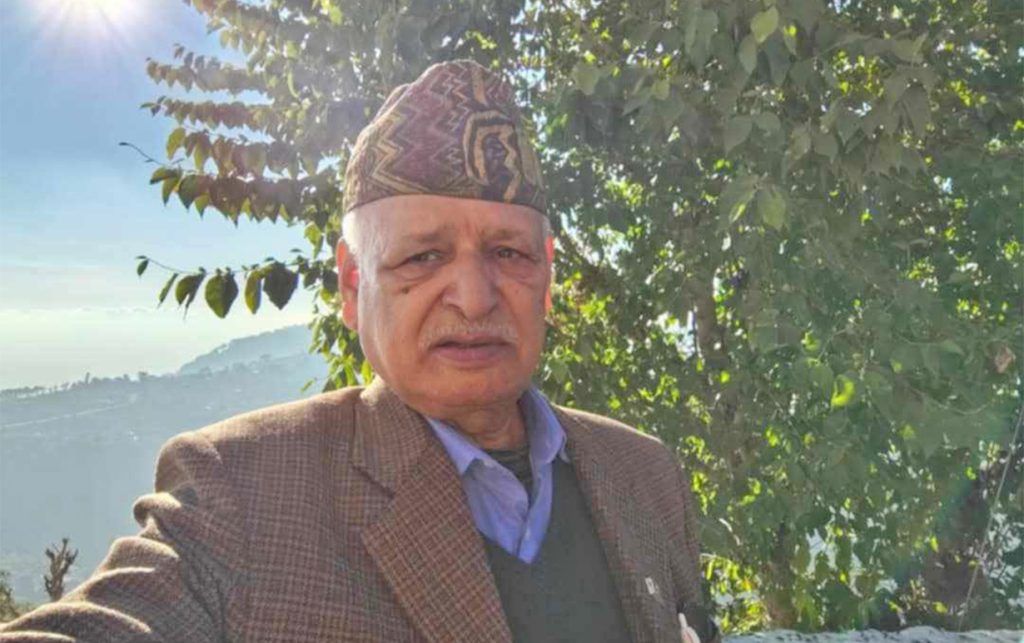
In the soft glow of the early morning, a symphony of life begins to play, each note contributing to the canvas of a new day. For me, this daily overture involves a tranquil walk that unveils the diverse tapestry of human activity.
From the rhythmic footsteps of individuals embarking on their daily journeys to the animated exchanges at tea shops and the joyous laughter of children engaged in their morning games, the dawn reveals a vivid spectacle of life.
It transcends the mere act of physical exercise, becoming a holistic experience that sets a positive tone for the day, providing a therapeutic release from the stresses of the workday. However, within this harmonious composition, there exists a discordant note that disrupts the serenity of the morning air.
It is the disconcerting sight of animals being slaughtered in open public spaces—a practice that, beyond its legal implications, challenges the very essence of communal harmony.
Appreciation for the balance

As a nature enthusiast, my concern is not rooted in activism but in a profound appreciation for the delicate balance of our shared space. The morning is an opportunity for collective rejuvenation, a symphony of life undisturbed by jarring elements.
It beckons us to reflect on our actions, calling for a small yet impactful shift in perspective. Business pursuits, while crucial for livelihoods, can coexist with consideration for the community by finding private spaces for activities that, when conducted openly, disrupt the tranquil beauty of the morning.
As I tread the familiar paths of my morning walk, the juxtaposition of life’s beauty and unsettling practices becomes more apparent. The joyous scenes of a community coming to life are marred by instances of rough driving, scattered waste, and the disruptive barking of stray dogs.
However, one aspect stands out as particularly distressing—the open slaughter of animals.
This is not merely a violation of regulations; it is a transgression against the shared space we inhabit, impacting the well-being of the community in more ways than one. While I am not an advocate of stringent animal rights or a proponent of any specific ideology, I am, undeniably, a nature lover.
My concern is not only about the legality of open animal slaughter but also its impact on the overall harmony of our surroundings. The morning, with its promise of renewal, should be a time for communal rejuvenation, free from elements that disturb the peace. As a community, we must contemplate the broader implications of our actions, ensuring that our daily pursuits do not infringe upon the tranquillity that the morning bestows upon us.
In particular, the public slaughter of animals raises ethical questions that extend beyond legal boundaries. It is not merely an offence against regulations; it is a matter of deep consideration for the sentiments of others. This practice, when conducted in plain view, could potentially hurt the feelings of those who oppose it on religious grounds, align with animal rights activism, or simply seek a peaceful coexistence with their surroundings.
Need for a shift in perspective and practice

The communal spaces we share are woven with threads of diverse beliefs, values, and perspectives. The open slaughter of animals on the roadside has the potential to disturb the delicate fabric of coexistence. Religious sentiments, often deeply intertwined with respect for life, may clash with practices that appear disrespectful or insensitive.
Moreover, individuals who identify as animal rights activists may find such scenes not only offensive but also a stark violation of their core beliefs in the ethical treatment of animals. Beyond these specific groups, the practice also impacts the broader community of peace-loving individuals who seek solace in the quietude of the morning.
The jarring sight and sounds of animal slaughter disrupt the meditative atmosphere that many cherish during their morning routines. It becomes not just an infringement on personal space but a disturbance to the collective peace that the morning hours bring.
It is essential to recognise that the morning is a shared space, a time when the community collectively breathes life into the day. As we engage in our daily pursuits, whether for exercise, business, or personal reflection, a shared responsibility emerges.
Business activities, including those involving the slaughter of animals for meat, must be conducted with a heightened awareness of their impact on the community. A significant aspect of this awareness involves finding private spaces for activities that may be sensitive or potentially disturbing to others.
In the case of animal slaughter for meat, the establishment of designated areas away from public view should be a priority. This not only adheres to legal regulations but also reflects a respect for the sentiments of those who may be adversely affected by the open display of such practices.
Moreover, this shift in perspective does not necessitate a compromise in the pursuit of livelihoods. Businesses can thrive while still adhering to ethical and community-centric practices. The establishment of private spaces for activities that might disturb the peace of the morning is not just a legal requirement but a manifestation of a considerate and responsible business approach.
In conclusion, the morning is a sacred time, a canvas upon which the community collectively paints the day. It is a time for rejuvenation, reflection, and shared tranquillity. As we engage in our morning rituals, let us be mindful of the impact our actions have on the collective harmony of our shared space.
The public slaughter of animals, beyond its legal implications, disturbs the peace and challenges the very fabric of our coexistence. By embracing a shift in perspective and practising a considerate approach, we can ensure that the morning remains a symphony of life, undisturbed by discordant notes.


















